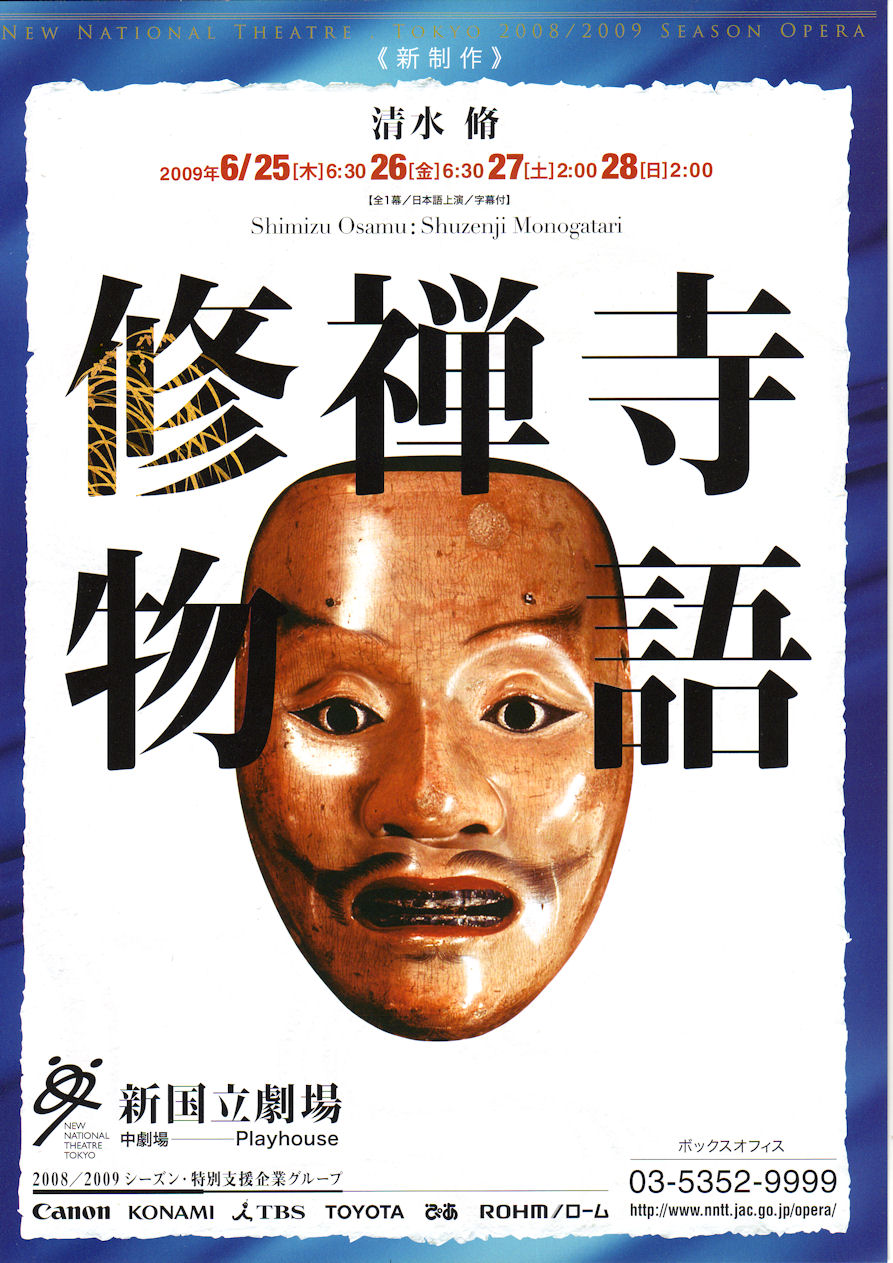
With the recent passing of conductor Hiroshi Wakasugi (right), the Tokyo Opera Palace has hired a new artistic director, Tadaaki Otaka. Wakasugi was lauded for bringing some modern works to the Tokyo stage (Zimmerman’s Die Soldaten was performed last year to positive reviews), but it has to be said that the Opera was far from cutting edge under his tenure. The previous director, Austrian Thomas Novohradsky, had intended to bring some excitement to the conservative institution, but had a troublesome time dealing with the Tokyo government bureaucrats who oversee the Opera’s budget. According to gossip, they would routinely veto any daring and adventurous production ideas, and be inflexible in regard to the system of booking talent (only two years in advance as opposed to the usual three, making it difficult to have the top talent come to Tokyo).
Hopefully Otaka has the nerve to stand up to the red tape, and move the opera in a bold new direction. Although Wakasugi was hardly radical, he did have some progressive ideas. It was his idea to include at least one opera by a Japanese composer in the season. He also wanted to bring some exciting European opera directors to Tokyo. He claimed to not have been a fan of modern stage productions (sex and violence, gulp), but felt it was a trend that shouldn’t be ignored.
Tokyo doesn’t have a stellar reputation for opera. But with the money it charges for tickets (among the most expensive in the world), it should. It seems that in an effort to appeal to the widest audience, the Opera Palace has opted for a conservative approach to programming. Every year sees traditional productions of La Traviata, Carmen, and other warhorses. Of course, that isn’t necessarily a bad thing. (I remember seeing Franco Zeffirelli’s Aida in New York: a true masterpiece of stagecraft.) But a chance is being missed here to present newer works or hire young directors. While the influence of Japanese artists is felt around the world, it has little effect on the world of art music here in Tokyo. It would seem a natural fit to ask some of them to bring their ideas to Tokyo’s opera stage.Just imagine if Takashi Murakami designed the stage for the Magic Flute!
Come on Maestro Otaka, let’s see some vision…

